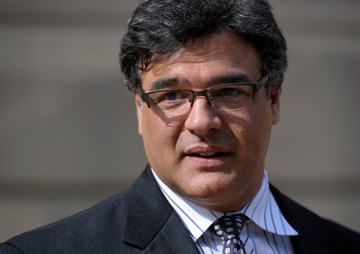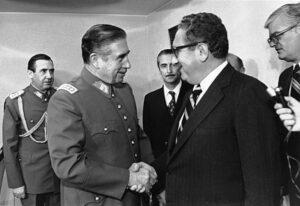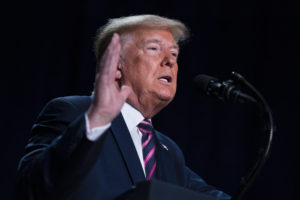In His Own Words: The Invisible Sentence Against Whistleblower John Kiriakou
Getting hassled during international travel is an “unseen addition” to the 30-month prison sentence and the loss of his federal pension that the CIA whistleblower has discovered in the wake of confirming that the U.S. government tortured terrorism suspects post-9/11. CIA whistleblower John Kiriakou. (Cliff Owen / AP)
CIA whistleblower John Kiriakou. (Cliff Owen / AP)
Getting hassled during international travel is just one of the “unseen additions” to the 30-month prison sentence and the loss of his federal pension that CIA whistleblower John Kiriakou has been forced to endure for confirming that the U.S. government tortured terrorism suspects in the post-9/11 war on terror.
The official charge against Kiriakou pertained to his confirming the name of a former CIA colleague to a reporter who never even published it.
“One of the first things that happened upon my conviction,” Kirakou writes at Truthout, “was that the company with which I had my homeowner’s and auto insurance canceled my policies. They don’t do business with felons, they said. That same week, my credit card company canceled my card and demanded the immediate payment of the balance.”
Then, shortly before my departure for prison, the agency that my wife and I used to hire child care providers also jumped on the bandwagon. They dropped us as clients and left us without anybody to help her care for our three young children while I was away.
When I finally came home from prison six months ago, I thought probation was all I had left to deal with. Yet even now, I’m still putting up with petty government harassment, even if the private sector has backed off.
Kiriakou recently traveled to Greece — his ancestral homeland — to help the country’s government craft whistleblower and anti-corruption legislation. He had “great success” securing support from the administration and all major political parties, and he plans to return in a few months to begin drafting a new law.
On returning to the U.S. at Dulles International Airport in Washington, D.C., an immigration officer asked Kiriakou if he has “ever been convicted of a crime.”
“You know I have,” Kiriakou replied. “It’s on your computer.” The officer scribbled a large “C” on Kiriakou’s customs form and returned his passport. When he walked to the customs line, Kiriakou was redirected to the customs office. There he waited in a “very long line only to be told to have a seat.”
The customs officer repeated the question. Kiriakou again responded “Yes.” He added: “What does that have to do with being let back into my own country?” The officer then called Kiriakou’s probation officer and learned that Kiriakou did have permission to leave the country. After an hour of being detained, he was allowed to leave.
“After 12 hours in transit, it felt like a whole day,” Kiriakou wrote. “I guess I’ll have to tolerate this nonsense every time I travel internationally.”
David Petraeus, the former CIA director and four-star general who was embroiled in scandal for revealing the names of undercover officers to his reporter girlfriend, “doesn’t have to put up with these hassles,” Kiriakou guesses. “I didn’t have four stars on my shoulder, and I wasn’t a friend of the president’s.”
— Posted by Alexander Reed Kelly.
Your support matters…Independent journalism is under threat and overshadowed by heavily funded mainstream media.
You can help level the playing field. Become a member.
Your tax-deductible contribution keeps us digging beneath the headlines to give you thought-provoking, investigative reporting and analysis that unearths what's really happening- without compromise.
Give today to support our courageous, independent journalists.






You need to be a supporter to comment.
There are currently no responses to this article.
Be the first to respond.